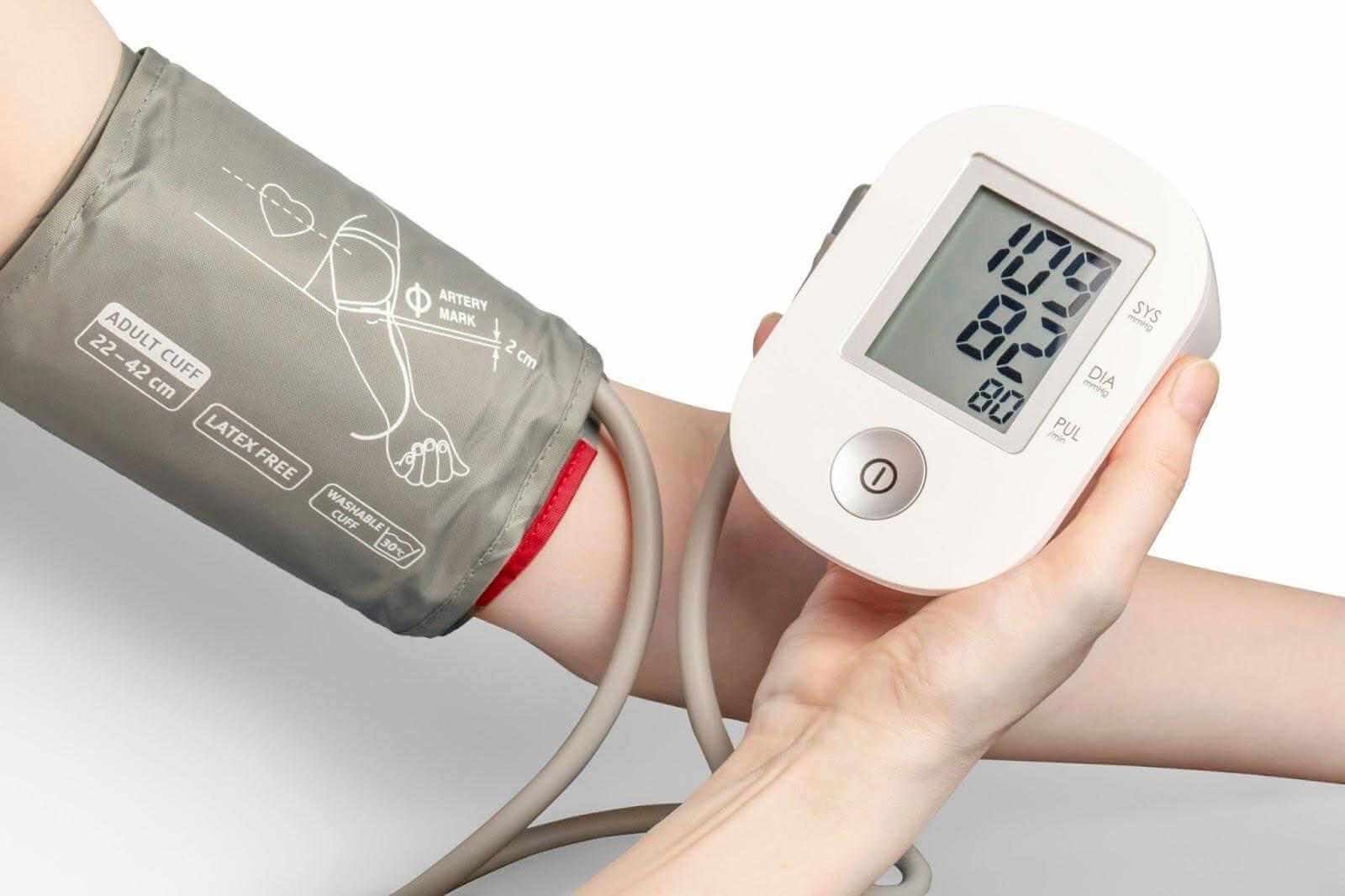Highlights
- Beta blockers are used to treat heart conditions ranging from high blood pressure to heart failure.
- This class of drugs blocks beta receptors. This can lower the effects of fight-or-flight hormones, help decrease heart rate, and regulate blood pressure.
- Find the lowest price for heart disease medications with BidRx.
Heart disease, or cardiovascular disease, is the leading cause of death for both men and women in the United States. For many people living with heart problems, beta blockers can keep their hearts pumping strong — even after a heart attack.
What Are Beta Blockers?
Beta blockers are medicines commonly prescribed to treat heart and circulatory problems. These drugs help lower blood pressure by slowing and regulating heart rate and in some cases, widening veins and arteries to improve blood flow.
Beta blockers (sometimes written as β-blockers), are also called beta adrenergic blocking agents because they target the stress hormones adrenaline and noradrenaline, responsible for the “fight or flight” state. These hormonal signals can cause the heart to work harder than it needs to, and for people with cardiovascular problems, this extra work can harm the heart.
Beta blockers may be used to treat ongoing cardiovascular conditions or protect against future heart attacks. Because they lower the effects of stress hormones, they are sometimes used to treat anxiety or panic attacks as well.
How Do Beta Blockers Work?
Throughout the body, tiny structures called beta receptors receive information from hormones, neurotransmitters, and other chemical messengers.
There are two main types of beta receptors:
- Beta-1, mostly found in the heart
- Beta-2, mainly found in the lungs and blood vessels
These structures have specialized shapes that allow them to interact with specific signals, like adrenaline, which can increase heart rate and blood pressure.
Beta blockers work by blocking these receptors, which helps lower heart rate and reduce blood pressure.
Selective beta blockers focus on beta-1 receptors, mainly affecting the heart, while nonselective ones impact both the heart and lungs. Nonselective beta blockers can be helpful in controlling the heart rate and widening the blood vessels. Both types of beta blockers can be good treatments for heart disease because blocking the beta receptors can lessen the impact of stress hormones on the body.
Selective Beta Blockers
Selective beta blockers primarily target beta-1 receptors, making them more specific to the heart than non-selective beta blockers. For this reason, selective beta blockers are sometimes called cardioselective beta blockers.
The adrenal glands release adrenaline and norepinephrine, which are a crucial part of the body’s fight-or-flight response. While they’re vital to survival, these hormones impact the function of the heart and blood vessels. If you have heart disease, they can put excess stress on your body. By targeting the beta-1 receptors, selective beta blockers are able to moderate the negative effect on the heart.
Selective beta blockers may be prescribed for several cardiovascular conditions including:
- High blood pressure (hypertension)
- Chest pain (angina pectoris)
- Irregular heartbeat (arrhythmia)
- Heart failure
These drugs can also be prescribed for off-label use at a doctor’s discretion. Selective beta blockers can be used to treat:
- Migraines
- Tremors
- Anxiety and panic attacks
Selective beta blockers usually come in pill form and are only available by prescription.
- Metoprolol (Lopressor, Toprol-XL)
- Atenolol (Tenormin)
- Bisoprolol (Zebeta, Concor)
- Nebivolol (Bystolic)
- Betaxolol (Kerlone)
- Acebutolol (Sectral)
- Esmalol (Brevibloc)

Warnings and Contraindications — Selective Beta Blockers
If you are using selective beta blockers, make sure you have your medication available at all times. Refill prescriptions promptly; skipped doses could cause side effects. Don’t suddenly stop taking a selective beta blocker — it could put you at risk of a heart attack or other heart problem.
Always follow your doctor’s instructions, and speak with your doctor before adjusting the dosage of any medications you take. Some people are at a higher risk of death with certain beta blockers, so don’t use them if you are allergic.
If you have any of the following conditions, be sure your doctor knows about it before you start a selective beta blocker:
- Certain types of arrhythmias
- Slow heart rate
- Low blood pressure
- Diabetes
- Liver or thyroid problems
- Kidney disease
- Asthma
Tell your doctor if you are pregnant or plan to become pregnant. Beta blockers cross the placenta and can have a cardiovascular effect on unborn babies.
Side Effects — Selective Beta Blockers
Common side effects of selective beta blockers may include:
- Fatigue
- Dizziness
- Cold extremities
- Upset stomach
- Weight gain
- Dry mouth or eyes
- Insomnia or nightmares
- Depression
- Headaches
This list is not exhaustive, and it may not apply to all types of selective beta blockers. Talk to your doctor about all the side effects you experience.
Severe side effects of selective beta blockers can include:
- Slow heart rate (bradycardia)
- Low blood pressure (hypotension)
- Changes in blood sugar levels
If you experience any of these severe side effects, seek medical attention right away. If you are allergic to selective beta blockers, you may experience symptoms of anaphylaxis, like:
- Swelling face, lips, tonge, or throat
- Difficulty breathing
Allergic reactions can be life-threatening, so if you experience any of these symptoms, seek medical attention immediately.
Drug Interactions — Selective Beta Blockers
Because selective beta blockers affect the way your body uses and reacts to certain chemical compounds, they can interact with other medications. It’s important to talk to your doctor about all drugs and medications you’re taking — including prescription drugs and all over-the-counter medications, supplements, and herbal products.
Selective beta blockers may interact with various drugs, including:
- Antiarrhythmic medications
- Antidepressants
- Calcium channel blockers
- Anticoagulants
- Antihistamines
- Nonsteroidal anti-inflammatory drugs (NSAIDs)
No drug interaction list is complete, and not all selective beta blockers have the same interactions. Visit the Drugs.com Drug Interaction Checker to find all known interactions for your specific medication.

Non-Selective Beta Blockers
Unlike selective beta blockers that target the beta-1 receptors in and around the heart, non-selective beta blockers can have an effect on both beta-1 and beta-2 receptors, which are located mostly in the lungs and blood vessels.
Natural compounds like epinephrine, dopamine, and norepinephrine influence these receptors, impacting both the cardiovascular system and respiratory function. For this reason, non-selective beta blockers can provide broader treatment for heart disease.
Some non-selective beta blockers have intrinsic sympathomimetic activity (ISA). This activates the beta receptors while preventing them from binding too much — think of it as a dimmer switch for the heart rate. ISA prevents the heart rate from slowing too much (bradycardia) during rest and can keep the cardiac output from getting too low.
Like selective beta blockers, non-selective beta blockers may be prescribed for conditions including:
- Hypertension
- Angina pectoris
- Arrhythmias
- Migraine prevention
- Anxiety and panic attacks
- Tremors
This type of medication may also be used to treat glaucoma, an eye condition that puts excess pressure on the optic nerve. For this use, non-selective beta blockers are used in the form of eye drops.
Non-selective beta blockers are only available by prescription. Some common types of this medication include:
- Propranolol (Inderal, Innopran)
- Timolol (Blocadren, Timol)
- Carvedilol (Coreg)
- Labetalol (Normodyne, Trandate)
- Sotalol (Betapace, Sorine)
- Nadolol (Corgard)
Warnings and Contraindications — Non-Selective Beta Blockers
Only take non-selective beta blockers as prescribed by your doctor. Avoid skipping doses and don’t suddenly stop taking your medication. Missed doses of non-selective beta blockers can result in side effects that may put you at risk of a serious heart problem.
Always speak with your doctor before adjusting the dosage of any medications you take. If you have an allergy to non-selective beta blockers or develop an allergic reaction over time, you should not take them.
Before starting any non-selective beta blocker medication, tell your doctor about any of the following conditions:
- Certain types of arrhythmias
- Slow heart rate
- Low blood pressure
- Diabetes
- Liver or thyroid problems
- Kidney disease
- Asthma or COPD
- Pregnancy
Be sure to tell your doctor about any breathing conditions you have. Non-selective beta blockers have an effect on the beta receptors in your lungs, so some people may be at higher risk of respiratory side effects. Certain non-selective beta blockers can lead to bronchoconstriction (narrowing of the airways), so they are not recommended for people with serious respiratory conditions.

Side Effects — Non-Selective Beta Blockers
Common side effects of selective beta blockers may include:
- Fatigue
- Dizziness
- Cold extremities
- Upset stomach
- Weight gain
- Dry mouth or eyes
- Insomnia or nightmares
- Sexual side effects
- Depression
- Headaches
This list is not exhaustive, and some effects may not apply to all types of non-selective beta blockers. Talk to your doctor about all the side effects you experience.
Seek medical attention right away if you experience severe side effects of non-selective beta blockers, including:
- Trouble breathing or an asthma attack
- Slow heart rate (bradycardia)
- Low blood pressure (hypotension)
- Changes in blood sugar levels
Allergic reactions can be serious. Seek immediate medical attention if you experience signs of an allergic reaction, including:
- Swelling of the face, lips, tongue, or throat
- Difficulty breathing
Drug Interactions — Non-Selective Beta Blockers
Like any drug, it is possible for non-selective beta blockers to interact with other prescriptions, supplements, herbs, and over-the-counter medications. Non-selective beta blockers may interact with the following drugs:
- Antiarrhythmic medications
- Antidepressants
- Calcium channel blockers
- Anticoagulants
- Antihistamines
- Monoamine oxidase inhibitors (MAOIs)
- Nonsteroidal anti-inflammatory drugs (NSAIDs)
No drug interaction list is complete. Visit the Drugs.com Drug Interaction Checker to find all known interactions for your specific medication.

Combined Alpha and Beta Blockers
Some non-selective beta blockers have the ability to block alpha receptors as well. Alpha (α) receptors are found in many parts of the body, including the smooth muscles that control the constriction of blood vessels. When stimulated by adrenaline, alpha receptors tighten the arteries, which increases blood pressure.
Combined alpha and beta blockers relax the smooth muscles in the blood vessels and decrease heart rate at the same time. For people with cardiovascular problems, combined alpha and beta blockers can be an effective way to manage high blood pressure.
Combined alpha and beta blockers are also used to treat:
- Heart failure
- Angina pectoris
- Certain arrhythmias
- Renal hypertension
- Migraines
In some cases, combined alpha and beta blockers can be used to treat high blood pressure in pregnant women. Like other beta blockers, this drug can cross the placental barrier and affect unborn babies, but studies show that the benefits may outweigh the risks.
Combined alpha and beta blockers are only available by prescription. The most common types of combined alpha and beta blockers are:
- Carvedilol (Coreg)
- Labetalol (Trandate)

Warnings and Contraindications — Combined Alpha and Beta Blockers
Always take medications as prescribed by your doctor. Avoid skipping doses and do not take an extra dose to make up for a missed one. Talk to your doctor if you have an allergy to your medications. Don’t suddenly stop taking combined alpha and beta blockers because it may result in rebound hypertension (a sudden increase in blood pressure).
Before taking combined alpha and beta blockers, tell our doctor if you have any of the following conditions:
- Certain types of arrhythmias
- Slow heart rate
- Low blood pressure
- Diabetes
- Liver or thyroid problems
- Kidney disease
- Peripheral artery disease (PAD)
- Asthma or COPD
- Pregnancy
Side Effects — Combined Alpha and Beta Blockers
Taking combined alpha and beta blockers may result in side effects, including:
- Fatigue
- Dizziness
- Cold extremities
- Upset stomach
- Insomnia or nightmares
- Fluid retention
- Headaches
Not everyone will experience the same side effects, and this list is not exhaustive. Depending on your needs, the benefits of combined alpha and beta blockers may outweigh the side effects. Always talk to your doctor about any side effects you experience.
Severe side effects can include:
- Slow heart rate (bradycardia)
- Low blood pressure (hypotension)
- Changes in blood sugar levels
- Wheezing or shortness of breath
Signs of a serious allergic reaction include:
- Swelling of the face, lips, tongue, or throat
- Difficulty breathing
Seek immediate medical attention if you experience an allergic reaction or other severe side effects.
Drug Interactions — Combined Alpha and Beta Blockers
Be sure to talk to your doctor about all prescriptions, over-the-counter medications, supplements, and herbal products you’re taking. Combined alpha and beta blockers are usually well tolerated, but they may interact with certain drugs including:
- Antihypertensive medications
- Calcium channel blockers
- Insulin and antidiabetic agents
- Monoamine oxidase inhibitors (MAOIs)
- Nonsteroidal anti-inflammatory drugs (NSAIDs)
Not all combined alpha and beta blockers have the same interactions, and no drug interaction list is complete. Visit the Drugs.com Drug Interaction Checker to find all known interactions for your specific medication.

Beta Blockers Can Be Life-Saving Medications
Beta blockers are some of the most commonly prescribed medications in the United States, and an estimated 30 million adults rely on these medications to support heart health. Selective, non-selective, and combined alpha and beta blockers all work to reduce the effects of stress on the heart and keep blood pressure under control. For people who have experienced a heart attack, beta blockers may be the key for keeping the heart strong and steady.
Find the Lowest Price for Heart Disease Medications
If your doctor has prescribed beta blockers, you can get your heart disease medications at an affordable price with BidRx. Use BidRx to compare prices from pharmacies across the country, then have your prescriptions delivered or available for local pickup. To get started, see all blood pressure medications and create your bid to find the lowest price for your heart disease medications today.
This information is intended for general informational purposes only. It is not a substitute for professional medical advice, diagnosis, or treatment. Always seek the advice of your physician or other qualified health provider with any questions you may have regarding a medical condition or medication.
